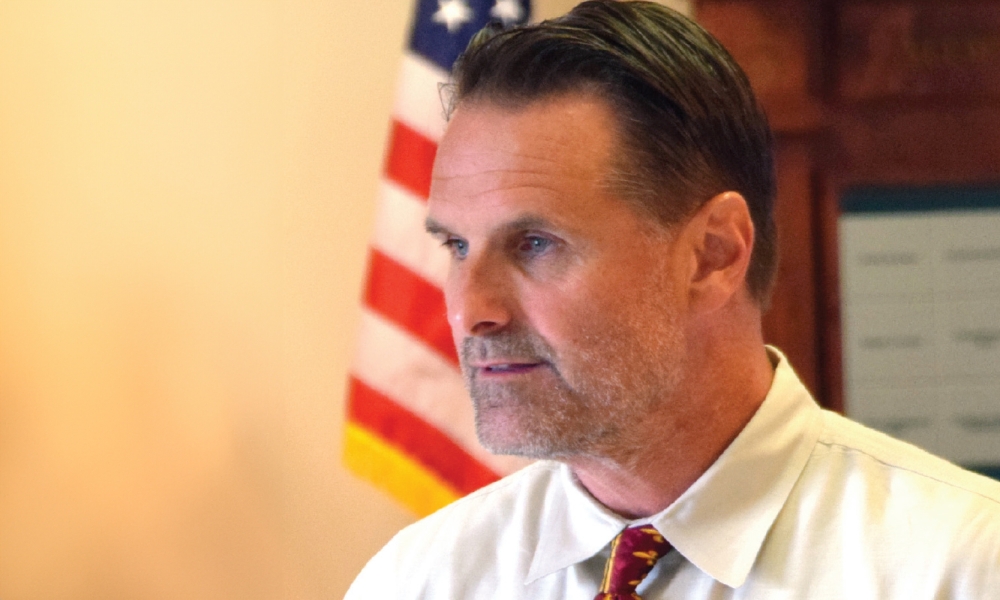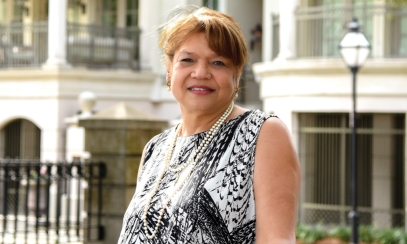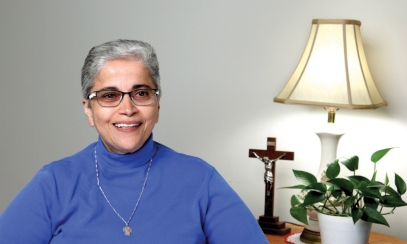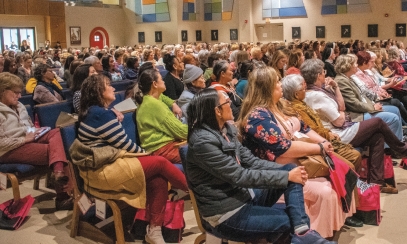
Catholic Inspired Teachings within a Culture of Justice
James Kirylo often contemplates his role as a teacher, especially as it relates to social justice and especially in this day and age. As a professor of education at the University of South Carolina, Kirylo does not shy away from his faith, whether in his life or profession.
James Kirylo often contemplates his role as a teacher, especially as it relates to social justice and especially in this day and age. As a professor of education at the University of South Carolina, Kirylo does not shy away from his faith, whether in his life or profession.
“With respect to my Catholic faith as a professor, much of my research and writing is linked to the spiritual, to my faith and has never been something I have been shy about,” he said.
Kirylo, who holds a doctorate in curriculum and instruction, said being a professor of education and having his Catholic faith as proverbial driving forces are ingrained into his soul. They are things he believes have enabled him to pave a “very real path forward to a more loving, kind and just world.”
His teaching is inspired by the idea that we are called to look out for one another, “particularly the poor, the marginalized, those that are hurting and all those on the outside looking in,” he said. Ultimately, he cares more about the actions people take, rather than a specific religious affiliation.
“That is, ‘religious affiliation’ obviously does not always translate into goodness and justice; more than sometimes, it translates to intolerance,” he explained. “I am more interested in the actions of others than what they say.”
Kirylo noted that teaching while holding a concept of Christian justice should not be political.
“It is worth noting that social justice can be a charged concept, often associated with the political left or progressives by both those in and out of the Church. But the reality is, traced down from the teachings of the Hebrew Scriptures to the Christian Scriptures to official Church documents, the almighty is a God of justice, meaning that ‘social justice’ is not about the right or the left, but rather is something inherently shaped in the image of God.”
Kirylo’s background is varied. For the last seven years, he has worked as a teacher of teachers in the College of Education at USC; for the 25 years before that, he served at various institutions teaching K-12 education including 15 years in a public school setting and three in Catholic schools.
His one constant has always been his Catholic faith.
“Throughout my teaching experience — spanning urban, suburban and rural settings in three different states — one of Jesus’ statements in particular influenced my thinking: ‘Whatever you did for one of these least brothers of mine, you did for me’ (Mt 25:40). Teaching with the goal of radiating faith, hope, love, compassion and understanding provided a warm conduit to a meaningful connection with students and their families. This same mindset grounded me as I moved into my work as a university professor,” he said.
As diverse as Kirylo’s teaching experiences have been, they directly relate to his diverse background and upbringing.
“Although in my youth I mostly attended school on a U.S. military installation in the Tuscany region of Italy, I also attended a private Catholic boarding school in Rome for a few years,” he stated.
His first confession, communion and confirmation all took place at the Vatican, with the latter two at the principal altar in St. Peter’s Basilica.
He also got to meet now-saint Pope Paul VI, who he said contributed to the social and ethical teachings of the Church. Later, as a young adult, Kirylo traveled and played the guitar on pilgrimages to Israel, Greece, Turkey, France and Italy. He spent time in Latin America — Paraguay, El Salvador and Peru — learning histories, cultures and political and social systems.
In early 2023, Kirylo published the book The Catholic Teacher: Teaching for Social Justice with Faith, Hope, and Love (Bloomsbury, 2023). The book speaks directly to other Catholic teachers, whether in Catholic or public schools, plus college professors or anyone who wants to keep social justice practices intertwined in their lessons regardless of religious affiliation.
It also speaks to those who wonder how one can go about living the faith while working in the public square and, in his case, spending many years in the K-12 education classroom at several public schools.
“What does that faith look like in action,” Kirylo asked, “especially in light of the Church’s commitment to social justice? Whether one works in a public school or religious-affiliated setting, it is not meant to be exclusionary but rather ecumenical, interfaith and interreligious in tone … it is meant for all those of goodwill, whether in education or not.”
Although Kirylo is not a professor of religion or theology, he trusts in the Catholic faith and the Church’s teachings on justice to guide his work.
“As conveyed by the U.S. Conference of Catholic Bishops in various documents, the God of life is not only interested in a personal relationship with each one of us, but also in the communal and social nature of that relationship,” he concluded.
Theresa Stratford is a freelance writer for The Miscellany. She lives in Charleston with her husband and three children and attends the Cathedral of St. John the Baptist. Email her at tmmart89@gmail.com.



